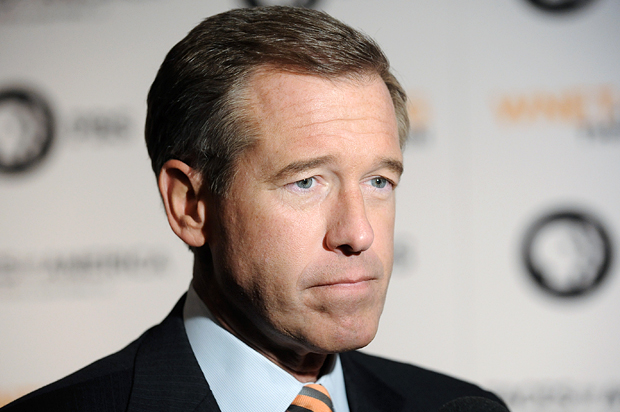“I said things that weren’t true,” he says. Considering that statement was uttered by a Peabody Award-winning network news anchor, I’d say Brian Williams can now claim the title of You Had One Job poster boy of the week.
Speaking with Matt Lauer on “Today” Friday in his first interview since his suspension from “NBC Nightly News” earlier this year, the embattled anchorman did not come out and say that he lied about his previous accounts of certain now contested events — in particular a 2003 report from Iraq in which he claimed that he’d been ordered to make an emergency helicopter landing when the Chinook ahead of them “was almost blown out of the sky.” In 2013, Williams called the incident a “holy crap” moment, but earlier this year, he admitted, “I would not have chosen to make this mistake. I don’t know what screwed up in my mind that caused me to conflate one aircraft with another.” Since then, other reports by Williams, including his accounts during the coverage of Hurricane Katrina and the fall of the Berlin Wall, have since come under scrutiny.
In his conversation with Lauer, Williams — who will rejoin the corporate family in August in the apparently shameful demotion to MSNBC — admitted that “It had to have been ego that made me think I had to be sharper, funnier, quicker than anybody else. I told the story correctly for years, before I told it incorrectly. I was not trying to mislead people; that to me is a huge difference. It came from a bad place. It came from a sloppy choice of words. I told stories that were not true. Over the years, looking back, it is very clear I never intended to. It got mixed up, it got turned around, in my mind.” But while he admitted that “One is too much. Any number north of zero is too many,” he also grasped for softer words for what he’d done, relying on “I got it wrong” repeatedly, a phrase that suggests error rather than intention.
I don’t believe that Williams set out to lie about the events he was covering. Instead, his weakness, his “ego” problem, truly does seem to have stemmed from an impulse to insert himself more dramatically and heroically into them. And if you look at the way his career path has gone, you can see how easily that powerful temptation might have arisen. Because Williams is part of a bigger machine here. An entertainment one.
The days of the serious talking head intoning the news in the voice of God have been over for decades. Anchors are now expected to deftly dance between recounting the tragedies of the day with jokey, self-deprecating material. They routinely show up on sitcoms and in movies as parody versions of themselves. No media monolith peddles that imperative quite as systematically as the NBC one, and no star has carried it out over the years with quite the unique finesse of Williams. This has been Williams’s forte — as the king of the late night slow jam to the headlines on “The Tonight Show,” the jokester on “30 Rock,” the drive-by punchline on “Saturday Night Live,” the witty talk show guest on “Letterman” and “The Daily Show.” His work may have been as a news man, but his fame has been as the charming personality, the party guest with the perfect anecdote. If his ego ran rampant, that didn’t happen in a vacuum. It doesn’t excuse Williams’ need to put his personality ahead of his job to tell the truth, nor should anyone cry for a man whose fall from grace involves a pay cut from a network anchorman-level salary and a steady gig on cable. It just puts into context a fiasco of Williams’ — and NBC’s — own making. It’s what happens when you expect viewers not just to listen to news reporters, but to applaud for them, as if it’s their due. It’s what happens when you assume that news is less a priority than showmanship.

